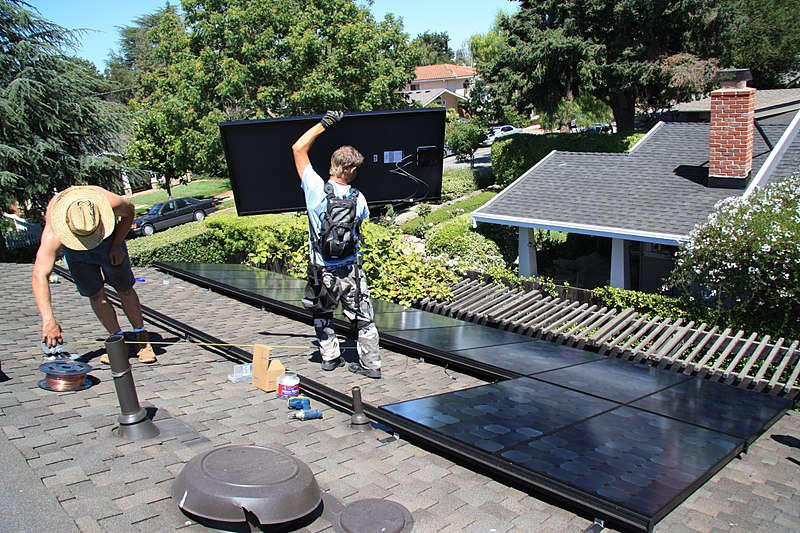Getting zero carbon done
Contents |
[edit] Introduction
While COVID-19 dominates global and national headlines in 2020, the ongoing prospect of climate change is also being taken seriously by policy makers. In November 2020, the Government issued a 10 point plan for a 'green industrial revolution', which aims to help tackle climate change by getting the UK to net zero carbon emissions by 2050.
The 2030 ban on internal combustion engine vehicle sales in the plan is clearly a positive step, but collaboration between industry, the Government and Distribution Network Operators (DNOs) will be vital to make it work. The extension of the Green Homes Grant was a useful response, but there is much work to be done to enable a skilled and trained workforce that can deliver results.
Meanwhile, we look forward to more detail on how the 10 point plan will be achieved, in addition to the release of the energy white paper and the next iteration of the Building Regulations and the Future Homes Standard, both of which will be key to future carbon reductions.
[edit] Industry vs climate change
Evidence shows we have little time to usefully mitigate the increasing effects of global warming. ECA is heavily focused on supporting the electrotechnical and wider engineering services industry in delivering the technologies and skills needed to help meet the UK Net Zero Carbon 2050 targets - and to deliver them as soon as possible.
To this end, ECA and partners have been looking for significant improvements in policy and fiscal support for clean energy and energy efficiency measures, enabling us to ‘build back’ better and deliver lower carbon economic recovery.
ECA has launched a new series of video shorts under the banner of Get Zero Carbon Done. These videos highlight several key areas where our sector can contribute significantly to further UK decarbonisation, and which will also need major upskilling.
All three videos are available from the links below:
[edit] Tools for success
ECA, working with Government and industry stakeholders, will be looking for the adoption at scale of low to no carbon energy systems and energy efficiency measures. This need to include the delivery and installation of:
- Solar photovoltaic (PV).
- Electrical energy storage systems (EESS).
- Heat pumps (air-sourced, ground-sourced, water sourced and air to air).
- Direct electrification of heating (infra-red, under-floor heating, storage-heating).
- Wind turbines.
- Hydropower.
- Energy efficiency measures.
- Smart building controls.
- Electrification of transport.
This link provides a list of eight low-to-no-carbon technologies that all installers and designers can consider.
[edit] Skills for the future
We must ensure that low carbon installation is carried out by a suitably trained and competent workforce. This means practically useful and properly scoped training for new entrants, notably in the form of apprenticeships, but also for the very much larger cohort of existing installers who also need to upskill for the low-carbon economy.
In order for Net Zero Carbon 2050 to be achievable, full support and commitment for the necessary skills is needed by both Government and industry. Long term market confidence and policy direction is also vital to give companies surety and enable them to invest in their workforce.
There has never been a more exciting time to be a part of the UK electrotechnical industry, nor a time that requires such urgency for the skills, products and systems that our sector can deliver.
This article originally appeared on the ECA website under the headline, 'A clear route to Getting Zero Carbon Done'. It was written by Luke Osborne, ECA Energy & Emerging Technologies Solutions Advisor and published on 17 November 2020.
--ECA
[edit] Related articles on Designing Buildings Wiki
- Articles by the Electrical Contractors' Association (ECA).
- A zero-carbon UK by 2050?
- Boiler markets and the green recovery.
- Building Back Better: Net zero carbon and BREEAM.
- Building regulations.
- Electric vehicle future.
- Engineers make policy decisions a reality.
- Future Homes Standard.
- Get ready for green jobs and upgrade projects.
- Net zero carbon 2050.
- Renewable energy.
- Zero carbon by 2050 - pipe dream or possibility?
[edit] External resources
Featured articles and news
Infrastructure that connect the physical and digital domains.
Harnessing robotics and AI in challenging environments
The key to nuclear decommissioning and fusion engineering.
BSRIA announces Lisa Ashworth as new CEO
Tasked with furthering BSRIA’s impressive growth ambitions.
Public buildings get half a million energy efficiency boost
£557 million to switch to cleaner heating and save on energy.
CIOB launches pre-election manifesto
Outlining potential future policies for the next government.
Grenfell Tower Inquiry announcement
Phase 2 hearings come to a close and the final report due in September.
Progress from Parts L, F and O: A whitepaper, one year on.
A replicated study to understand the opinion of practitioners.
ECA announces new president 2024
Electrical engineer and business leader Stuart Smith.
A distinct type of countryside that should be celebrated.
Should Part O be extended to existing buildings?
EAC brands heatwave adaptation a missed opportunity.
Definition of Statutory in workplace and facilities management
Established by IWFM, BESA, CIBSE and BSRIA.
Tackling the transition from traditional heating systems
59% lack the necessary information and confidence to switch.
The general election and the construction industry
As PM, Rishi Sunak announces July 4 date for an election.
Eco apprenticeships continue help grow green workforce
A year after being recognised at the King's coronation.
Permitted development rights for agricultural buildings
The changes coming into effect as of May 21, 2024.























